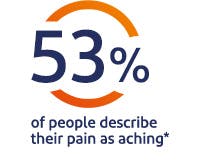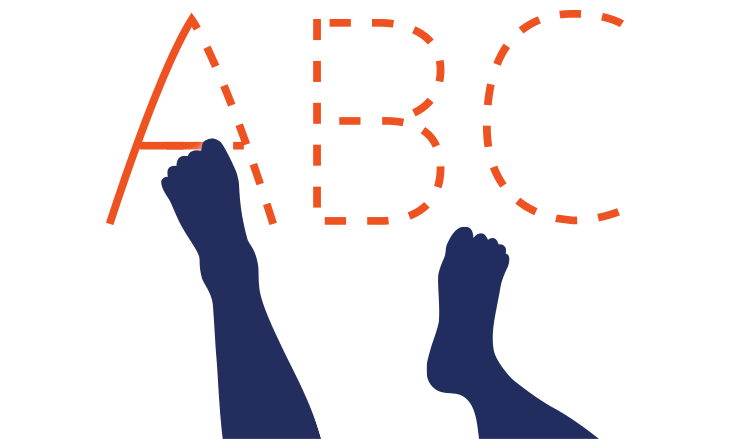Symptoms of ankle and foot pain
Pain may be felt from the toes of the foot to the heels, or in the ankle joint.
Swelling, pain and stiffness can occur if the ankle joint is sprained or the joints in the toes become injured.
01
Damage to the foot can cause bruising and redness, which may be painful when pressure is applied.
02
Swelling and pain can make it hard to move the ankle joint freely or put weight on the foot.
03
How foot and ankle pain can affect you?
Most people have experienced foot and ankle pain, making it painful to carry out everyday activities like walking the dog, climbing upstairs, running for the bus and playing sports.
Did you know?
46% of people feel pain in their ankles.*
59% of people feel pain in their feet.*
*GSK Global Pain Index Research 2014 – full report p.62
Why do we experience foot and ankle pain?
Foot and ankle pain can be caused by overuse injuries and sprains, as well as fractures or broken bones. Plantar fasciitis, caused by damage to the band of tissue that runs under the sole, can cause heel pain. You can also experience foot pain if you wear tight, high-heeled or ill-fitting shoes, while sport injuries can also cause foot or ankle pain.

If you have pain in your heel, it could be an Achilles tendon injury
Stiffness and pain along the back of your heel could be a sign of damage to your Achilles tendon. This is caused by repetitive or intense strain of the tendon that connects your calf muscles to your heel bone. The Achilles tendon is used when you walk, run, jump or stand on tip toe so this injury often occurs after you have been playing sports.

Sprains and ankle pain
Sprains are a common cause of ankle pain. They occur when ligaments are stretched, twisted or torn, resulting in a swollen ankle that hurts when you put weight on it.
Expert treatment
Because we use our feet and ankles every day to get around, when they are painful it can be quite unbearable. Often, home remedies can help alleviate pain, such as applying ice to reduce swelling, keeping your foot elevated and using over-the-counter pain medicine to reduce pain and inflammation. However, if you have severe pain, swelling, or an open wound, you should see a doctor. It is also important to see a professional if you’re unable to put weight on your foot, making it difficult to walk, have burning pain, numbness, or are diabetic. Your doctor may perform a physical exam and suggest light exercises as well as order imaging tests such as an X-ray or MRI.

Ankle ABC
This simple range of motion stretch helps to maintain flexibility and mobility in the ankle joint
You should feel this stretch at the top of your foot and in your ankle
- Sit down, making sure that your feet don’t touch the ground
- Leading with your big toe, use your foot to write each letter of the alphabet in the air
- Repeat with your other ankle
- Keep movements small, using just your foot and ankle
- Do this exercise twice a day
Explore our range
Find out how our products can help
Discover the Voltaren product range to find the right product to treat your pain.

Learn more
Exercise and your body
Learn more about the benefits of exercise and how keeping fit can help you to stay healthy and relieve pain.
read moreWhat is pain?
Get a better understanding of why our bodies experience the sensation of pain and the many causes of body pain.
read moreLearn about your body and how it changes as you age
Find out how your body works, changes you may experience as you get older, and how to deal with age-related body pain.
*GSK Global Pain Index Research 2014 Report. Available: www.global-pain-index.com. Last accessed 20th April 2016.
Read More












